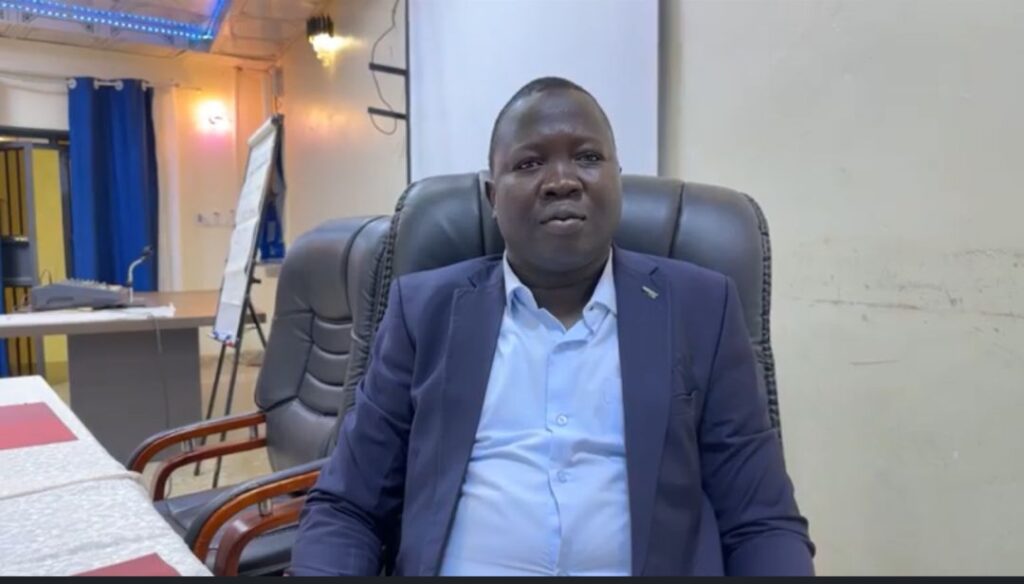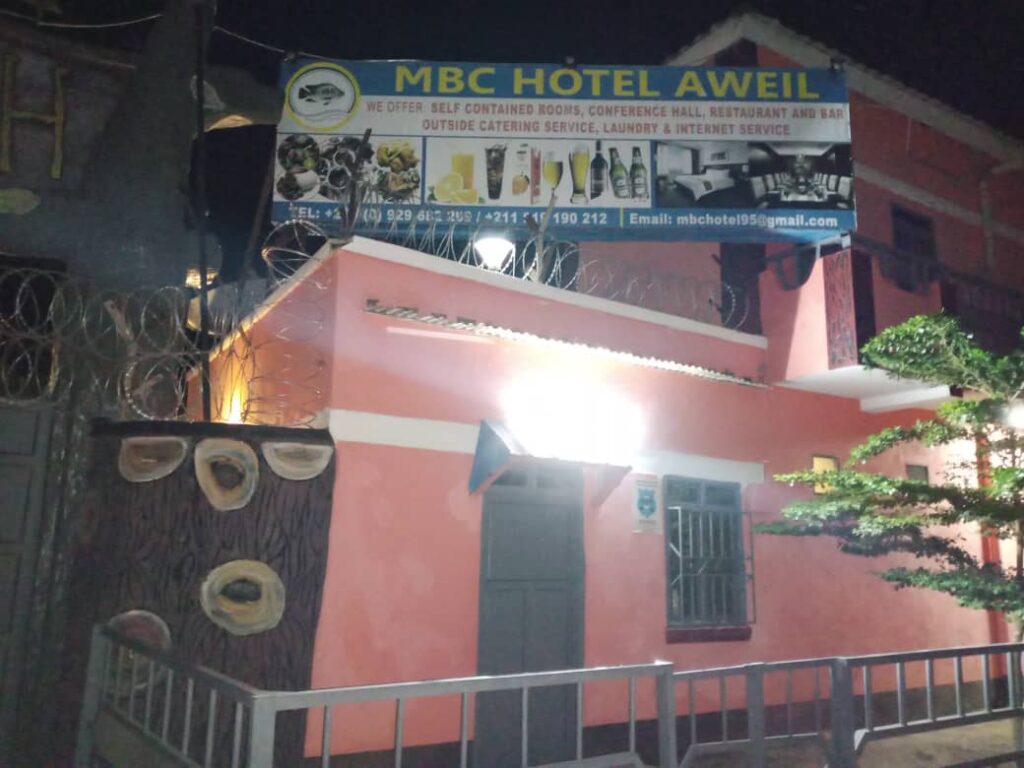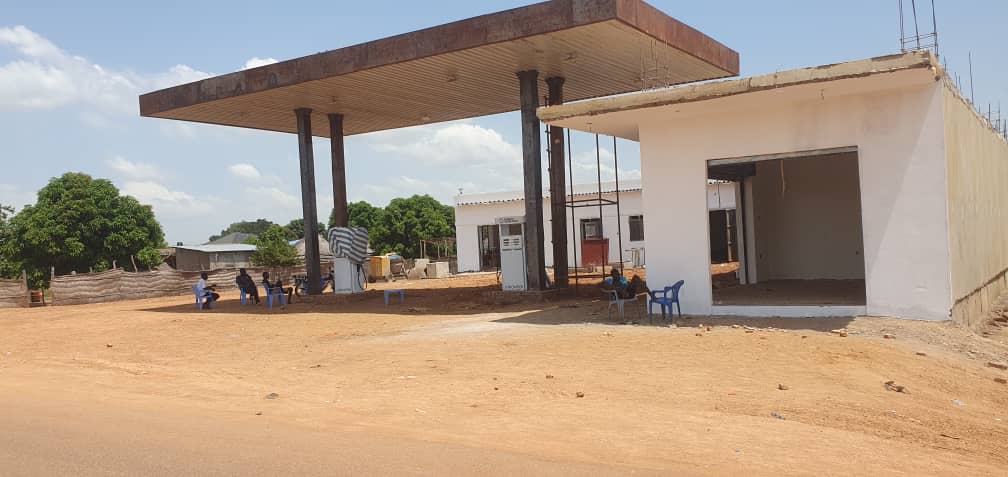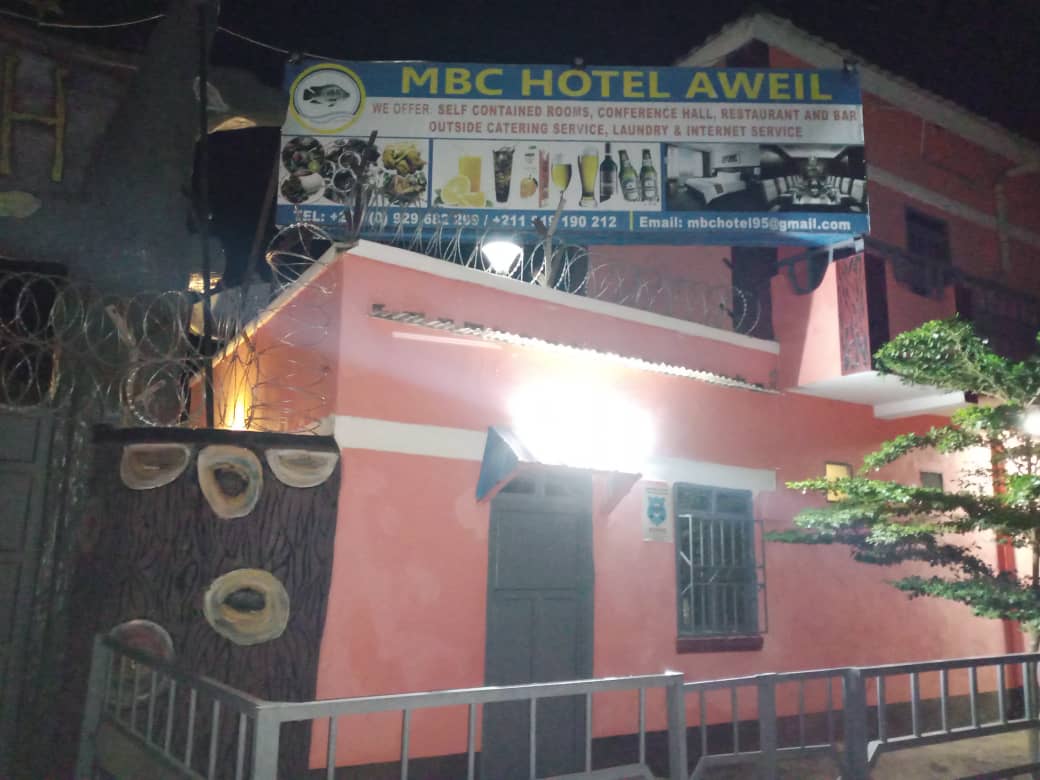South Sudan's English Daily Newspaper
"We Dare where others fear"

By Benjamin Takpiny
In 2013 crisis crippled South Sudan, entrepreneurs rapidly scaled down or out rightly lost their investments, not for Francis Ngong Makak, who only equipped with business ideas plunged into the void created.
Institutions were bogging down and even the least of services were in highest of demand and scarce. With a $2000 hard-earned saving, Makak braved the journey ahead.
His gap of opportunity came when everyone was seeking secretarial services in Awiel town of Northern Bahr el Ghazal States and he dived fully in.
“I started with one laptop, one printer, one ID cutter, one sealing machine,” Makak said.
“I faced a lot of challenges, the budget I had was small and knowledge was not enough to operate the business but later I went for business training on how to deal with customers. Now I have a good relationship with customers” he said.
The business climate was tough, huge prospects were closing down and even people fleeing the country. The crisis left 400,000 people dead, displaced four million others and created a chaotic situation in the economy. Proceeds from crude oil production which accounted for over 90 percent of economic growth in South Sudan reduced as production closed in some key exploitation sights.

With a transitional government instituted by a peace agreement in 2018 seen largely stopping fighting in South Sudan, the economic rejuvenation still remains at a low, further affected by global phenomena including the COVID-19 pandemic which reached the country in early 2020, and the undulating floods which has hit for over three years affecting local production and creating new displacements and a threat to livelihood.
The pandemic still remains active and according to the COVID-19 dashboard at the World Health Organization, as of Mid-October, 771 million confirmed infections have been recorded including 7 million deaths.
South Sudan confirmed cases were at 18, 368 confirmed cases with 138 deaths, mainly during the heights of the pandemic in 2020.
Countries closed borders, economic activities bogged down and to-date, ripples of effects still ring the globe.
Three years of unrelenting floods worsened the situation in South Sudan, adding to an already dire humanitarian situation. In the countryside, hundreds of thousands of people remain displaced and depending on humanitarian handouts.
China is a country that has opened up to people who are enthusiastic in developing person investments like Makak.
Over 40 years, into 2022,the number of people in China with incomes below $1.90 per day – the International Poverty Line as defined by the World Bank to track global extreme poverty– fell by close to 800 million, according to a World Bank report.
With that China has accounted for almost 75 percent of the global reduction in the number of people living in extreme poverty. In 2021, China declared that it has eradicated extreme poverty according to the national poverty threshold, lifting 770 million people out of poverty since 1978, and that it has built a “moderately prosperous society in all respects.”
Whether measured with the international or national poverty line, the speed and scale of China’s poverty reduction is historically unprecedented-and yet can be achievable for a country like South Sudan.
Like that of Makak, China’s financial policy included development of personal investment of individuals and has helped a quick economic growth and continuous rise in the living conditions of its people.
This has removed constrains on receiving income from personal savings because of rising consumption levels, and they are beginning to have a desire for personal investment and financial management.
Makak’s first major breakthrough came when MSF asked if he could be engaged to produce for them some secretarial work. That was in 2014.

“I got a tender from MSF that they need a company to print for them the things for the hospital in Aweil,” he said.
“By then I had a trading license only, and MSF gave me a condition – to get that contract, I have to register my place and a company, which I did so.”
From there, Makak’s entrepreneurship balloon slowly and has since not looked back. He is currently the proud owner and Chief Executive Officer of Makakdit and Brothers Limited, based in Juba and with branches in Kuacjok, Akon, Aweil and Wau.
“When I got my first contract with MSF, I got 16,000 dollars, expenses was 7,000 (dollars) since I hired some printers from others. My profit was 9,000 dollars and I sent that amount to Kampala to buy more printers,” Makak said.
That contract opened up for him more exploration into working with nongovernmental organizations.
He currently owns ten trucks in his business, has 7 NGOs who contract him and event takes other contracts from the government.
Proudly he confides, “We are dealing in general supply, construction, car hire, hotel, petrol station, printing center and pharmacy.”
From the onset when he ventured into business, Makak became an employer, beginning with 3 people helping him print to now a proud employer of 115 people across his growing business empire.
Makak believes personal willingness to develop actually bears fruits and he sticks it out to the youths in South Sudan.
“I want our youths to stop blaming the government. Let us come to the market. I am a South Sudanese, come and buy from me and support me,” he said.
“Don’t blame the government that they allow the foreigners to control market, come and do something small, the market is wide. There are different kinds of products we can sell in the market, leave the politics and come to the market. You can start with something small and make sure you go up every time. If you have a bicycle this year, you buy motorcycle next year, don’t make expenses to be more than your income.”
Not yet done with business, Makak is mulling plans in hotels’ constructions across the States and a big hospital in Awiel.
“Those who have money, you bring them out and work with them, those with money and have no ideas you get some training or get yourself a consultant such that you will not get loses,” he said.
“I am encouraging the youth to take over the work instead of blaming President Kiir or government for not employing the youth. We have to do our part as South Sudanese by creating jobs to ourselves.”





Congratulations to Mr. Makak that is the true meaning of from zero to hero big up to him may God bless him more to achieve great things in his future Time
I have really enjoyed reading the article and many thanks for keeping some of us updated with current news and developments within the capital city and states as well .
Thanks